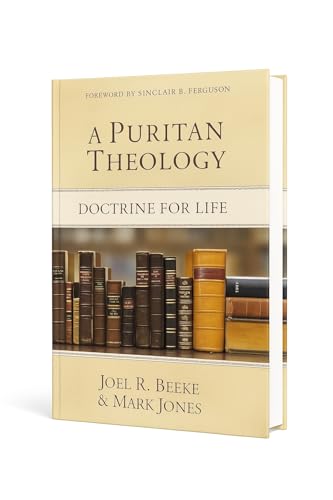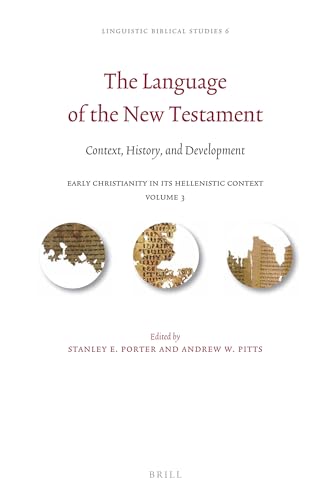A Puritan Theology: Doctrine for Life
Written by Joel R. Beeke and Mark Jones Reviewed By Nathan A. FinnOver the past couple of decades, Joel Beeke, president of Puritan Reformed Seminary, pastor of a Reformed congregation in Grand Rapids, and editorial director of Reformation Heritage Books, has published a prodigious amount of both scholarly and popular material related to the Puritans. In the past five or six years Mark Jones, a Presbyterian pastor in Vancouver and research associate at the University of the Free State in South Africa, has proven himself an able scholar of the Puritan and Reformed traditions. These two pastor-scholars, along with some of their colleagues and students duly recognized in the acknowledgements, have collaborated in writing the warmly received A Puritan Theology: Doctrine for the Christian Life. The book provides a synthesis of the sort of Puritan theology that has influenced evangelicalism ever since the mid-twentieth century. It is a signal achievement and an invaluable resource for those interested in Puritan thought.
Beeke and Jones begin with a short introduction that defines the sort of Puritanism their book treats—what I call the “Banner of Truth Puritans.” These were the types of pastor-theologians whose works are widely reprinted by publishers such as Banner of Truth, Soli Deo Gloria, Solid Ground Christian Books and Reformation Heritage Books. Most of them were consistently Calvinists, though Richard Baxter is a notable exception. The Reformed Orthodoxy movement on continental Europe deeply influenced them, inspiring them to attempt to reform the Church of England in similar ways. The movement lasted from roughly 1560 to 1689, reaching the height of its influence in the 1640s and 1650s. These Puritans influenced later Calvinistic movements from Edwardseanism in the mid-1700s to the “New Calvinists” of today. By focusing on this strand of Puritans, while also conceding the movement could be defined more broadly, the authors readily confess they are writing primarily for pastors and students.
The chapters are divided into sixty chapters and structured roughly along the lines of a systematic theology textbook in the Reformed tradition. Many of the chapters deal with classical theological loci such as the Trinity, providence, Christology, church government, etc. Other chapters zero in on particular thinkers: John Owen, Thomas Goodwin, and John Bunyan loom especially large, followed close behind by William Perkins, Richard Sibbes, Thomas Manton, and Stephen Charnock. Still other chapters deal with uniquely Reformed topics, especially the six chapters on covenant theology and the chapters touching upon the Sabbath, the regulative principle of worship, and Reformed pedobaptism. Many of the chapters address topics related to pastoral theology (three different chapters on preaching) or spiritual theology (prayer, meditation); these are some of the richest sections of the book.
For those who make a regular habit of reading Puritan reprints, there will be few theological surprises. For the most part, these Puritans were “five-point” Calvinists who held to covenant theology, baptized infants, affirmed the third use of the law and debated the relative merits of congregationalism vs. Presbyterian polity. However, the authors point out Puritans who do not reflect the dominant paradigm, including hypothetical universalists such as Baxter and Baptists such as Bunyan and Benjamin Keach. Some readers will perhaps be frustrated that some individuals are not included, notably Edwards (though he is mentioned off and on throughout the book), while others, especially Baptists, might push back at the author’s clear preference for covenantal pedobaptism. Some will chafe at the implication—never explicitly stated—that the Puritans were cessationists; this remains very much a matter of scholarly debate. However, readers should keep in mind that the authors spelled out the types of Puritans they would focus upon: “Banner of Truth Puritans,” most of whom were in fact five-point Calvinists who baptized infants and did not believe the gift of prophecy continued beyond the apostolic era.
While Beeke and Jones have obviously written a book about Puritan theology, as noted in the title, A Puritan Theology is also a book about Puritan spirituality. Some chapters explicitly address matters of Puritan piety, as mentioned above, but Puritan spirituality pervades nearly every chapter. What Beeke and Jones understand, and what social historians often miss, is that Puritanism was, by and large, a movement committed to a particular sort of Reformed piety. As with nearly all pre-modern theologians, the Puritans believed that doctrine mattered for the Christian life—a point highlighted in the book’s subtitle. Beeke and Jones do a fine job of expounding Puritan thought, but they also constantly make application to contemporary Christian spirituality, a move that would no doubt be applauded by the Puritans themselves. Like a good Puritan sermon, A Puritan Theology always moves from the doctrine to the various uses. For this reason the book is as valuable for being a window into Puritan piety as it is Puritan theology.
A Puritan Theology is an important book that is long overdue, as evidenced by its impressive sales figures in the earliest weeks after its publication. As a synthesis of the doctrinal and spiritual priorities of “Banner of Truth Puritans,” it should find a wide readership for many years to come. Beeke and Jones are correct that pastors and students will find a wealth of informative and edifying material related to Puritan thought. The structure of the book ensures that pastors will find the material they need to buttress their sermons, while students will have no trouble finding Puritan examples to highlight in their term papers. As a historical theologian, I have no doubt that A Puritan Theology will also be warmly received by all historians who believe intellectual history is crucial for understanding Christian history. Whether pastors, students, or scholars, I am confident that anyone who reads A Puritan Theology will learn much about Puritan thought, drink deeply of Puritan spirituality and, hopefully, be encouraged to read the writings of the Puritans for themselves.
Nathan A. Finn
Nathan A. Finn (PhD, Southeastern Baptist Theological Seminary) serves as provost and dean of the university faculty at North Greenville University. He is co-editor of the forthcoming volume Historical Theology for the Church (B&H Academic, 2021).
Other Articles in this Issue
Too often people think of the Reformation in terms of an abstract theological debate...
Abstract: Evangelical Faith and the Challenge of Historical Criticism, edited by Christopher Hays and Christopher Ansberry, argues that evangelical scholars have failed to embrace historical criticism to the extent that they could and should...
Thomas Prince, editor of The Christian History—the first religious periodical in American history—could hardly have invented the Great Awakening, as Frank Lambert argues...
Theology is first and foremost about who God is and then about what he has done...
I would like to consider several elements in reviewing Bray’s work...







